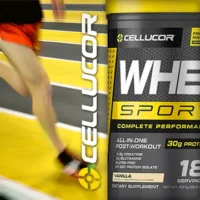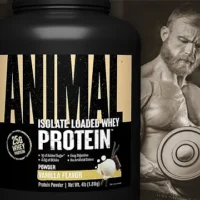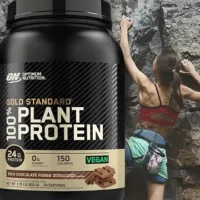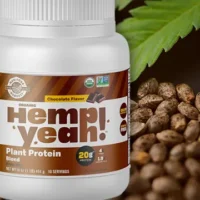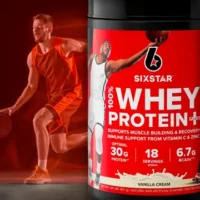Ingredientsprotein ingredient glossary
Lactobacillus bulgaricus
Lactobacillus bulgaricus is a friendly bacteria used in foods. It can be added to protein powders as a probiotic to support gut health, improve digestion, boost the immune system, and maintain a healthy balance of bacteria in the gut.
Lactobacillus casei
Lactobacillus casei is a friendly bacteria commonly found in the human gut and some fermented foods, and can be added to protein powders as a probiotic supplement.
Lactobacillus plantarum
Lactobacillus plantarum is a friendly bacteria found in the human gut and some fermented foods, and can be added to protein powders as a probiotic supplement.
Lactoferrin
Lactoferrin is a protein found in milk, known for its antimicrobial properties and ability to transport iron. It may be added to protein powders to support immune function and overall health, as well as having anti-inflammatory properties.
LecithinSoy Lecithin, Sunflower Lecithin
Lecithin, a phospholipid extracted from soybeans and eggs, is used as an emulsifier in protein powders to improve mixability and prevent clumping.
Lipase
Lipase is added to protein powders to aid in the digestion and absorption of fats and oils present in the powder. This can benefit those who have difficulty digesting fats or have a high-fat diet.
Lycopene
Lycopene is added to protein powders as a supplement to support overall health and provide antioxidant protection. It can help protect cells from damage caused by free radicals, which can contribute to chronic diseases.
Malic acid
Malic acid is added to protein powders to enhance flavor and balance the pH of the product. It is a naturally occurring organic acid found in many fruits.
Maltodextrin
Maltodextrin is added to protein powders as a source of carbohydrates to provide energy or muscle recovery.
MCT powderMedium-chain triglyceride powder
MCT powder is a dietary supplement that contains medium-chain triglycerides, which are metabolized differently than other dietary fats. It is used to support weight loss, increase energy and athletic performance.
Monk fruit extractLuo han guo
Monk fruit extract is a natural, calorie-free sweetener derived from the monk fruit. It is used in protein powders as a sugar substitute to enhance the taste without adding extra calories or carbohydrates.
Neotame
Neotame is a non-nutritive artificial sweetener that is used as a sugar substitute in various food and beverage products, including protein powders.
NiacinVitamin B3, Nicotinic acid
Niacin, a water-soluble vitamin, is commonly added to protein powders due to its role in healthy metabolism and energy production. It also supports healthy skin, nerves, and digestion.
NiacinamideNicotinamide, Vitamin B3
Niacinamide, a form of vitamin B3, is included in protein powders due to its involvement in energy production, DNA synthesis, and cellular repair. It supports healthy skin, reducing fine lines, wrinkles, redness, and improving skin elasticity.
Nisin
Nisin is a naturally occurring antimicrobial peptide. It is added to protein powders as a natural antimicrobial agent to extend shelf life and reduce the risk of contamination.
Nutriose
Nutriose, a type of soluble fiber made from corn starch, is added to protein powders to increase fiber content, support digestive health, and promote fullness.
Nutritional yeastSaccharomyces cerevisiae
Nutritional yeast, known for its savory, umami flavor, is a good source of protein and other nutrients. It's added to protein powders for plant-based protein, vitamins, and minerals.
OctacosanolPolicosanol
Octacosanol is a plant-based ingredient that is often used in protein powders to enhance physical performance and endurance. It may enhance oxygen uptake, and reduce oxidative stress and inflammation, improving recovery.
OligofructoseFructooligosaccharides
Oligofructose is a type of soluble fiber found in many plants, included in protein powders to promote the growth of beneficial gut bacteria.
Oligosaccharides
Oligosaccharides are complex carbohydrates found in plant-based foods, also added to protein powders as prebiotic fibers for gut health.
The content on this site has not been written, reviewed or endorsed by a medical professional. We assume no liability for the misuse of supplements and recommend you review the label of any product, as well as consulting with your health care professional.
We are a participant in the Amazon Services LLC Associates Program, an affiliate advertising program designed to provide a means for us to earn fees by linking to Amazon.com and affiliated sites.
We are a participant in the Amazon Services LLC Associates Program, an affiliate advertising program designed to provide a means for us to earn fees by linking to Amazon.com and affiliated sites.
© 2025 ProteinPowder.com
